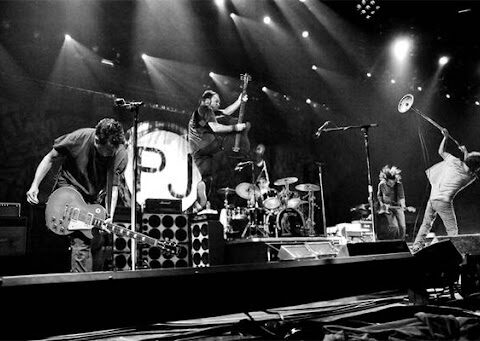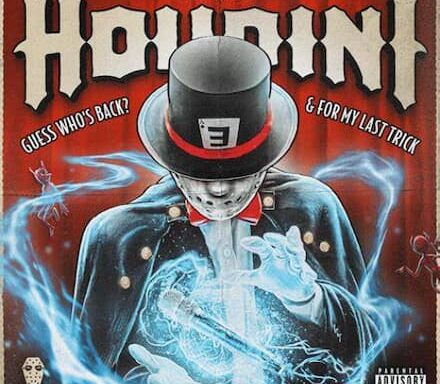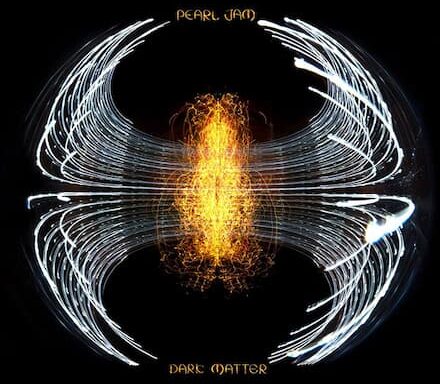The sudden and untimely death of the Cranberries frontwoman Dolores O’Riordan made for another sad start to another year, with the loss of another great, iconic rock star of the last two decades.
Dolores, who was found deceased on January 15th in a London hotel room, was only 46.
As I noted at the deaths of both Chris Cornell and Scott Weiland, it has felt like many or even most of the best or most important musical voices from my personal favorite era of music have had short lives.
One of Dolores’s most famous songs was the Cranberries’ mega-hit single ‘Zombie’ – one of the defining alt-rock or alt singles of the 1990s. I remember listening to that song obsessively for several months as a teenager. I was never that big a fan of the Cranberries as a unit in terms of composition and style, but more a fan of Dolores as a uniquely special singer and an uncommonly engaging personality. In fact, I preferred the 1996 album To the Faithful Departed a little more to their earlier, more famous, two records.
But this isn’t an article about how great Dolores was (there were lots of those in the last month) or even about ‘Zombie’ as a song or a phenomenon.
It is a beautiful, brilliant piece of music, of course – and ninety percent of why is simply Dolores’s haunting, impassioned and sublime vocals and her stirring lyrics.
But rather this is an article about how ‘Zombie’ seems to stand alone in the modern(ish) annals of popular music – and for a very specific reason.
What has struck me in recent years is that (1) we live in an era that is seemingly devoid of ‘protest songs’ or politically relevant music at the mass-audience level, and (2) that ‘Zombie’ is probably THE standout example of a powerful, yet popular, piece of socio-politically signifcant pop music from the last twenty years or so.
The lyrics to ‘Zombie’ were inspired by an IRA bombing in 1993, in which two children, Jonathan Ball and Tim Parry, were killed. Mere weeks after ‘Zombie’ was released, the IRA declared a ceasefire after what had been over two decades of terrorism. While no one in their right minds would claim that the Cranberries’ song played any role whatsoever in the IRA’s decision, the timing seemed pretty synchronistic.
There was a joke going around at the time that the IRA might’ve declared the truce simply to stop Dolores O’Riordan writing any more songs like that.
No one seems to write political music anymore or to use the musical art-form to channel or express anything of social or political relevance. Oh, I know there are lots of folk singers, street rappers or underground bands who probably do – but I’m not talking about the middle-aged guy crooning over an acoustic guitar to a field of about twelve people or the RATM-inspired anarchist band playing five gigs a week in tiny venues and losing more money than they can ever hope to make to sustain their progress.
Those guys are still around and always will be. But I’m talking about songs, albums or artists with money behind them and with a big platform and mass or potentially mass audience to speak to.
The idea of those sorts of figures putting their heads above the parapet to actually say something seems to have become alien – and it must’ve happened some time between the late 90s and now.
‘Zombie’ was 1995. There were maybe a few other highish-profile songs or singles from the same era that tried to say something and which got a fairly big reaction. Pearl Jam‘s ‘Jeremy’ was in 1992 and that was a pretty powerful piece of socio-political commentary: like ‘Zombie’, it was rare in that it was both incisive and damning commentary AND managed to be a massive hit single and landmark.
Like ‘Zombie’, ‘Jeremy’ also spawned a compelling, controversial and memorable video. The ‘Zombie’ video was directed by the legendary Samuel Bayer who, aside from having directed videos for the likes of Michael Jackson and David Bowie, also directed some of the most iconic music videos of the early 90s ‘alternative’ scene, including Nirvana’s ‘Smells Like Teen Spirit’, Hole’s ‘Doll Parts’, Smashing Pumpkins’ ‘Bullet With Butterfly Wings’ and several Blind Melon videos.
The ‘Zombie’ video has attracted some controversial opinions over the years, particularly in this modern era of YouTube conspiracy theories; but, like many of Bayer’s videos, it is full of compelling imagery, some of which originated with Dolores’s own ideas. The idea of being painted gold was apparently hers.
But it’s the substance of the song, thematically, that stands out: and the fact that such a ‘hit’ single was also so politically and culturally charged. I can’t remember anything like that happening again after ‘Zombie’.
And also around that same time, Rage Against the Machine were doing this sort of thing the most aggressively and ruthlessly of all, with the likes of Public Enemy having peaked (commercially speaking) a couple of years earlier.
When we look around now, there’s really no one doing anything like that.
And, near as I can tell, the only major artists who do work on those levels are artists who CAME from the 90s in the first place and are thus still doing what they were always trying to do. PJ Harvey is the best example of all, devoting entire albums to collections of songs that really try to channel or explore important issues or to react – as an artist – to contemporary affairs. The Manic Street Preachers also generally always hit the mark too.
And sometimes you’ll get a Radiohead putting out something like Hail to the Thief.
But it’s rare. And it’s the older artists doing it.
Aside from PJ Harvey, the most consistent exponent of this art form has been Sinead O’Connor, who – interestingly – is someone who has often been compared with or linked with Dolores O’Riordan in the popular mind. O’Connor has never not been a protest singer and a firebrand who was never scared of taking on or exploring controversial issues. She was always that way, from her very earliest years of high-profile stardom (she also, a few years ago, declared that music itself was dead – a thought echoed by various other musicians).
While Dolores O’Riordan perhaps was never as continously or controversially associated with those things as O’Connor was, she was nevertheless always seen and embraced as an artist who was all about real things, real concerns and subjects – and not safe, sanitised, commercially-acceptable fare.
Beyond the 1990s (and excluding acts like O’Riordan or PJ Harvey, whose breakthrough eras were in the 90s), can you think of any majorly successeful or high-profile recording artist that has released any high-profile or mass-audience music that has touched on anything significant?
I really can’t.
In that context, when I look back at ‘Zombie’, I don’t just remember a stunningly beautiful song, but one of the last pieces of successful pop music that meant anything. And that was over twenty years ago.
Does this represent a diminishing in the social or political conscience or in the intelligence level of artists themselves? Or is it an industry-controlled dumbing-down process that has been deliberately exercised?
It could be either. And I’m inclined to think it might be a mixture of both.
On the subject of Dolores, the Cranberries and ‘Zombie’, it is worth noting that Island Records had reportedly urged the band not to release ‘Zombie’ as a single, but to choose other tracks from the album instead. Supposedly, this was because it was seen as too political and potentially too controversial.

But, as it happened, the song that the record label didn’t want released as a single ended up at No.1 in multiple countries and went on to tell something in the region of 17 million copies (an INSANE amount for a single), becoming almost immediately iconic.
In today’s climate, one senses the single wouldn’t have been released.
It isn’t just an issue of the music itself either; significant cultural art doesn’t exist in a vacuum, but has a knock-on effect and influence on broader culture, society and intelligence too. The nature and quality of music being released on major or relatively widereaching labels or platforms effects the nature and quality of music being played on radio and music television, which itself impacts popular tastes, sensibilities, standards, intellect, fashion, etc.
The point is that popular music is so large a part of our culture that it can be said to influence a lot of people’s personalities, views, lifestyle choices and intelligence level, and to directly influence things like political awareness, sexuality, social preferences and so on – and especially during formative years of adolescence.
When the overwhelming majority of music being promoted and financially aided into popularity is pure manufactured product, utterly devoid of any real cultural relevance, social or political character or any meaningful substance, it massively affects the inherited ‘culture’ and mindset of those growing up on it.
Which takes the matter beyond a purely musical one and into broader cultural and societal issues.
There is no protest music anymore. At least none that gains any traction or achieves any lasting impact. We have to look back at acts like Rage Against the Machine, Public Enemy, the Clash, or even as far back as Bob Marley, Bob Dylan or Neil Young.
In fact, the biggest semblance of a commercially successful protest song or something of the sort making any kind of impact in recent times was, ironically, when a social media campaign caused Rage Against the Machine’s ‘Killing in the Name’ to beat whatever shite Simon Cowell’s puppets were putting out to that year’s Christmas No.1 spot. The irony is that the RATM track was almost twenty years old at that point and it only happened because of a concerted social media campaign.
‘Zombie’ really does stand out as the only memorable protest song or politically significant pop song for many years – at least in terms of coming to wide notice and making a significant impact as a song that, even twenty years later, people still hold close to their hearts.
What’s so extraordinary about that is that the era we are currently in – politically, socially, culturally – would seem to warrant or invite a plethora of protest music or otherwise politically significant music. But it isn’t there.
The irony is that the likes of Rage Against the Machine were active in pretty tame times, by comparison: but now – in a time that is more socially and politically toxic and divisive as any in recent memory – there is a field of deafening silence where you might actually expect a lot of noise.
We seem to have been bred a conveyor line of dumbed down, sanitised pop stars with no willingness to say anything about anything (or worse, to belong to the curious club that only communicates in symbols).

This may be down to something as simple as the present breed of ‘stars’ either not having any opinions of those kinds or being unwilling to risk causing a stir or alienating any potential supporters – or it could be, as I said, part of a controlled dumbing-down operation.
It might also be part of a long-playing programme to take the political power out of music (or at least out of commercially successful or mass-audience music).
Some might also – to be fair – prefer it this way: preferring not to mix politics and ‘entertainment’. I know people who think that way. And some people – audience and performers alike – find it embarassing or even cringeworthy (in fairness, if done badly it can backfire).
But some of the most enduring or iconic popular music of all time has been politically charged or was even divisive in its time. And you do wonder if something has been lost from the medium of popular music.
We may miss Dolores O’Riordan for lots of reasons – one of them being simply that she had such a unique, extraordinary voice and such a distinct personal touch. But one reason to miss her is because she was one of the few remaining popular music figures who actually had things to say and a potent way of expressing them.
Read More: ‘PJ Harvey’s ‘Hope Demolition Six Project’ – A Work of Art, Not a Manifesto‘, ‘The Enduring Spirit of Richey Edwards…‘, ‘Scott Weiland: A Disoriented Goodbye to a Rock n’ Roll God‘, ‘Layne Staley – Still Mourning‘, ‘Eddie Vedder, Milton Keynes & the Jerusalem Post Controversy,’ ‘Manic Street Preachers’ The Holy Bible – When Rock n’ Roll Mattered‘…





I agree with much of this blog post. Bar the small corner of the musical universe that I mostly inhabit (heavy metal, of all sorts), and apart from the current renaissance of the TV series format, it is true that we live in a cultural wasteland. As for politically ‘a point’ music from major artists, there’s virtually nothing out there right now worth speaking of, which is truly bizarre. It actually makes me want to start a political heavy metal band, to fill this obvious gap (I’m a singer). This makes it all the more impressive when you hear a song that hits the nail on the head, in many, many ways. Check out ‘No Lives Matter’ from Body Count’s new album:
https://youtu.be/hlk7o5T56iw
It nails it: income inequality, racism, ID politics, the police state, the elite’s disregard for the ‘little people’. We need more music like this. Hats off to Ice T for his perspicacity…and it’s a damn good song too!
Thanks Rod. Man, I haven’t listened to Body Count since the 90s! But I’m going to check this out.
Also, do start your metal band and start doing it yourself!
Brief acknowledgement and pleased ‘ya back’. // What a conspicuous absence in mod. music. Unlikely much recognition, this might be… something to note. Dunno? Don’t keep up with rock and roll commentary. Clear brief bursts of honest gusto about the world we’re living in, seem all so yesteryear. And those from then, declined along, with their then socialist-ish appeal. Even style over substance aside in suggesting rise-up and responsibility. Different and fresh air. Just. How few and far today… wot a state. More often a lot of posh kids making good and career. Keep the jiggy crowds poppin’ along. Not this isn’t a tight reflection of campus culture. All too stoned and/or cynical to get to grips with the faked-up and loaded realities. Loss of hope and why bother… assumed social demise prevails and reckoning b.all-b.done about. Make music and want money? Keep in the Govt. etc. sanitised propaganda or door shut but Youtube. Even there… Something else isn’t it. Hardly a whimper. ‘In your head in your head they are crying…’ Nah, can’t have that. Party or personal-only is not only supreme but exclusive and dominant. Been neutered and are knackered off. Sure you’ll shout here and any likeable exceptions.
Thanks, and good to hear your voice, bro. On the subject of protest songs, here’s a good compilation from one of the best music bloggers around: http://eclecticmusiclover.com/2017/01/20/top-ten-best-protest-songs/
Thanks so much for recommending my post!
Despite the examples I cited, I do agree with this statement of yours: “The irony is that the likes of Rage Against the Machine were active in pretty tame times, by comparison: but now – in a time that is more socially and politically toxic and divisive as any in recent memory – there is a field of deafening silence where you might actually expect a lot of noise.”
The current state of political and societal upheaval is the worst since the Vietnam War & Civil Rights movements – at least in America. So you do raise a valid question in your observation that, given those high levels of upheaval, why aren’t more influential artists making protest songs? I don’t for a moment believe it’s because people today – especially millennials who have been energized into action by the horrific Trump presidency – have no interest in hearing protest songs. I think it has to do with marketing, money, and fear of pissing off or alienating a potentially large segment of the public.
Green Day got a lot of shit over “American Idiot,” and the Dixie Chicks got tons of hate after speaking out against George W. Bush’s invasion of Iraq. What artists should do is make songs like “War,” “What’s Going On” or “Zombie” that don’t attack a particular politician or party, but the evils of war or social injustice, and that doesn’t seem to be happening, other than for the limited examples I gave.
I wasn’t aware that Green Day got any shit over American Idiot. That’s interesting.
I’ve seen a lot of nasty comments on Facebook, Twitter and YouTube over the years from the 35% of people in the U.S. who are conservative zealots.
Got it. Reminds me of the Pearl Jam gig in Texas that went badly back in 2002 or 2003ish. I think Rob Horvat might’ve mentioned ‘Bushleaguer’ to you before – basically, Vedder’s entire audience turned against him at that show when he played that song – essentially because he was mocking the Bush presidency.
Now that you mention it, it makes perfect sense Green Day would get crap for something as blunt as American Idiot.
We can’t forget Green Day, who admittedly emerged in the 90s but had a massively influential and commercially successful album ‘American Idiot’ in 2005 that was full of protest songs about America’s invasion of Iraq under then President Bush. And then there’s Kendrick Lamar and his last couple of highly acclaimed and commercially successful albums that contain several songs that would be considered protest songs about the Black experience in urban America.
A few recent songs of protest, albeit somewhat oblique in their messages, include “Walk on Water” by 30 Seconds to Mars and “World Gone Mad” by Bastille.
Thanks, Eclectic Music Lover. Yeah, I completely forgot Green Day’s album, that’s a good point. I’m not massively aware of Kendrick Lamar’s work, so thanks for the tip. And I will check out the Bastille and 30 Seconds to Mars tracks too.
Obviously I was generalising in the article, making a broad point. But it’s good to be somewhat corrected by high-quality contemporary music bloggers 🙂
A few days ago I was talking to a fellow blogger about protest songs. You’re right, mostly old school artists wrote protest songs and we would be hard pressed to find a contemporary artist out there brave enough to do the same. That said, many of the artist I follow are protesting in different ways nowadays, especially about sexuality or gender politics.
By the way, check out Midnight Oil and all their politically charged protest songs.
I’ve kept a list of some of the artists you’ve covered at Rearviewmirror – which I intend to check out and listen to when I can catch up. You’re too prolific to keep up with.
But Midnight Oil is added to the list, thanks.